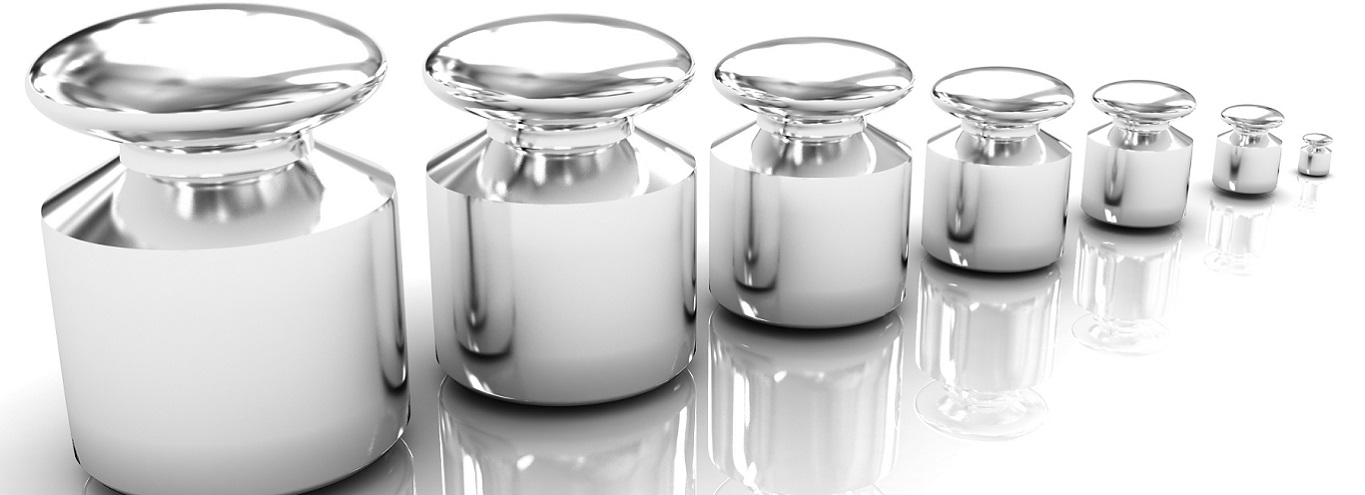Kiwi kilogram flies to Paris
While 2020 has seen many Kiwis’ travel plans disrupted or altogether halted, one important and regular trip from our shores to Paris has still managed to take place. But it may be for the last time.

As part of a process that happens every five years, NZ’s national metrology institute, MSL, recently sent its 1 kg mass transfer standard to Paris where it is now being compared to the transfer standard held at the home of metrology, le Bureau International des Poids et Mesures (BIPM).
BIPM is home to Le Grand K – a cylinder of platinum iridium that is the International Prototype Kilogram (IPK) for the International System of Units (SI), against which all other official kilograms are ultimately compared.
However, after 130 years, the mass of Le Grand K is changing over time, prompting metrologists to find another, more accurate means of realising the standard kilogram.

A new era
In May 2019, as part of a major revision of the SI, the international metrology community ushered in a new era, when it decided to redefine the kilogram in terms of a fundamental constant of nature – the Planck constant, h.
The redefinition will allow for more accurate and reliable measurements of mass, as well as related quantities such as density, volume, flow, force and pressure. That greater accuracy will ultimately enable industry advancements in areas such as pharmaceuticals and electronics.
Two methods have been agreed upon to link the Planck constant to the kilogram: the use of a silicon sphere and the Kibble balance.
MSL is undertaking a significant project to develop its own Kibble balance; if successful, this will ultimately allow MSL to stop comparing physical artefacts held here with those half a world away and, for the first time, to realise the kilogram on our own shores.
MSL research scientist Dr Yin Hsien Fung explains that the NZ Kibble balance is one of just 10 globally, and the only one of its kind to use twin pressure balances to ‘weigh’ the mass standard. This not only capitalises on MSL’s institutional knowledge in pressure balances, but is also a simpler, smaller and more cost-effective design.
“There is a lot of interest from the international community in the development of our Kibble balance,” he says. “Because it’s a simpler apparatus, it holds the opportunity to democratise the ability to realise the standard kilogram, which is significant, for example, for those in developing economies.”
However, with no ‘recipe’ for making a Kibble balance in this way, the project presents MSL with some complex physics and engineering challenges. The performance of the apparatus will also need to be compared with other Kibble balances around the world before it will be recognised as a realization of the kilogram with sufficient accuracy – a goal Fung says will hopefully be achieved within the next decade.
Travelling on
In the meantime, MSL technician and mass metrologist Greg Reid, who has been involved in sending NZ’s kilogram to France four times, awaits the transfer standard’s return from its Paris sojourn.
The shipment entails its own complexities. Prior to being sent to France, for example, the transfer standard goes through a series of comparisons with MSL’s set of four standard kilograms – carried out over 20 nights. It is then wrapped in a specially cleaned chamois cloth, tied with coloured string, and packaged and sealed inside an aluminium container. Accompanied by its own travel documents, the transfer standard is then sent to France. However, on arrival, it must spend three more weeks acclimatising there before it can undergo mass comparisons at the BIPM.
While the Kiwi kilogram still managed to land in Paris this year, despite disruptions due to covid-19, certain elements of the process, such as shipping, were delayed. This highlights further advantages, says Fung, of being able to realise the standard kilogram locally following the redefinition.
“The world is facing increasing disruption, so it makes sense for our systems to become more localised. Who knows, one day the human race might set up a colony on Mars, and are you going to send your kilogram from Mars to Paris every five years? No, you’re going to build your own Kibble balance.”
